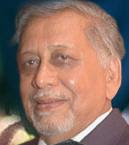As the month of April stepped in it has become primary concern of most of the nations to find ways to save their own countries from the economic downturn. India felt that a sweeping change in international financial system is not necessary at present. But the developed countries must look after developing countries of the world and the stimulus package should be considered for the countries in Asia and Africa surely. The meeting of the G 20 was supposed to usher in a new financial discipline in the world economy. The most of the developing countries of Africa, including Kenya and Egypt, want that there should be sweeping changes in the international financial system. These countries felt that the effect of globalization has badly effected their countries and developed countries have got themselves enriched at the cost of developing countries. The concept of Globalization, developing countries felt, has brought in one sided benefit. It created poverty in developing countries whereas developed countries were hugely benefited. These system of controlling financial discipline for benefit of developed countries must change, African and Asian countries felt. Most nations feel that China and India will be Engines for change. Though the economic growth of India is coming down to 6.5% for 2009, it is still much better off compared to Europe where the growth rate is not only negative it is below zero.
With the economic down turn developed countries of the world too were in turmoil. They felt also that the time has come to have a re-look at the international financial system. They felt too that it is high time for a change in economic system. But what change is envisaged? None of the countries are sure exactly what would be the most ideal system of managing fiscal discipline. The French president forewarned that unless the strict new financial system is ushered in his country would not be party to G 20 deliberations. However Indian Prime Minister felt that more than sweeping change in the fiscal system, the World Bank and IMF should be strengthened and developing countries should be given bigger say in managing the funds. The head of the state of developed countries are waiting for the advice of Indian Prime Minister for he is regarded as the brilliant mind in World Economics.
We felt that what was needed in developed economy was more supervision and not regulation. In the recent crisis it appeared that the bank supervisors in developed countries did not do a proper job. The Bank supervisor did not use the common sense to go beyond what was usual business model in vogue. Indian banking system survived because it had stricter supervision in place.
In a survey conducted by Glob Scan, in association with the university of Maryland, reported BBC, it was found that More than 70% of people in 29 countries think major changes are needed in the way the global economy is run. Nearly two thirds - 62% - of the public say the downturn has negatively affected them, and half say the downturn will last more than two years. There is also broad support for reform of domestic economic policy.
In a survey conducted by BBC it was found that in four countries - Russia, Japan, Mexico and India - which are all in the G20, there is not majority support for major changes to the international economic order.
The survey did not ask what sort of changes in the global economy the public wanted, but another poll carried out in the UK suggested that a high priority would be a global stimulus package that created jobs. The vast majority of people of most countries want international stimulus so that job creation could be taken up expeditiously. Another important point came out in the survey that the shortage of credit seems to be having a bigger effect on families in developing countries; while 29% in the US, 19% in the UK and 16% in Germany say it has personally affected them or their families. What was more important in the present situation is to create demand for consumption rather than controlling of inflation. The growth activities need to be propagated. There is a strong possibility in India for further reduction of interest rates shortly despite falling, almost zero level of inflation. For the first time Indian Prime Minister admitted that the growth of the Indian economy might be negative and it can be as low as 6.5%. It is a fact that Assam Tribune’s business page predicted this rate of growth despite great optimism of some officials and institution of Government of India in the month of January.
In this connection the comment of the British Prime minister is praiseworthy to be quoted : “Leaders meeting in London must supply the oxygen of confidence to today's global economy and give people in all of our countries renewed hope for the future," This was what India also wants.
-------------------------------------------------------------
blogcatalog
Subscribe to:
Post Comments (Atom)





No comments:
Post a Comment